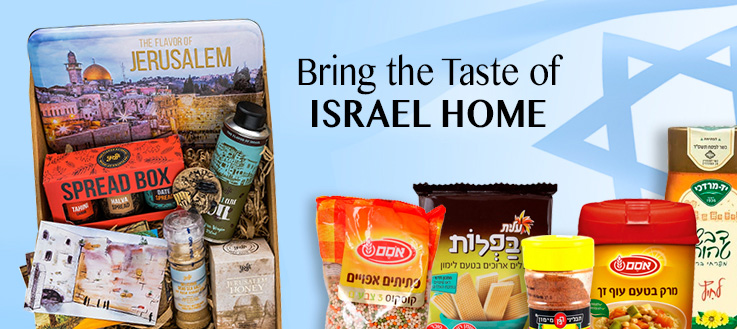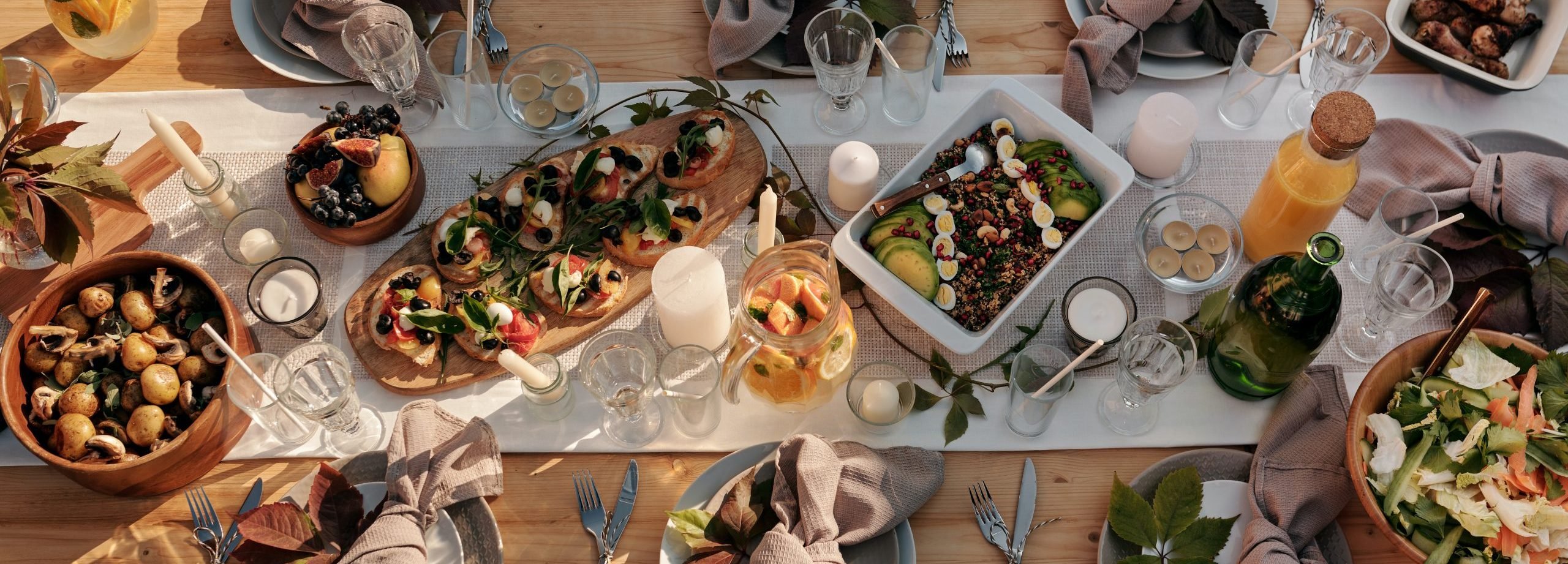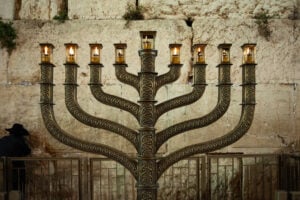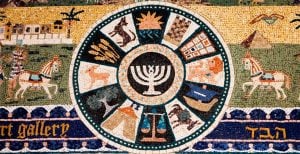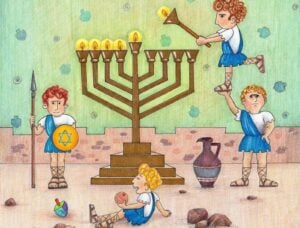Every before-bracha or bracha rishona in Hebrew, begins the same way, but has a different ending for the type of food.
Baruch atah Ad•hnai El•haynu melech ha-olam…
(Blessed are You, L-rd our G‑d, King of the universe…)
Leavened Bread: …hamozti lechem min ha-aretz (...who takes out sustenance from the earth)
This includes bread, and everything that has bread, like sandwiches and salads with bread-croutons, and of course the Challah for Shabbat. Other foods with leavened yeast, like soft pretzels, pizza, and matzah, use this too.

Referred to as ‘Hamotzi’, it is the most important bracha and once said can include all foods and drinks under it, like with the salad situation mentioned before. If a meal contains bread even as a separate item, all one needs is for this blessing to cover it all, so if your meal is bread-roll and soup, you would not say the bracha over soup too.
Unleavened Grains: …borei minei mezonot (...who creates varieties of grain)
This one, ‘mezonot’, contains every grain that is cooked without leavening, like oatmeal, cake or hard pretzels. If it is one of the 5 grains mentioned in the Torah, wheat, barley, rye, spelt, and oats, or rice that is included rabbinically, it takes this one. That means a Pesach-cake made of almond flour would not take this.
Unlike hamotzi above that includes everything, this only covers grain-products. If you had a breakfast of oatmeal and an apple, this would need two brachas, but if something is a condiment, like hummus for dipping hard pretzels, it is not in need of a second bracha.
This principle applies to the rest as well.

Wine/Grape Juice: …borei pri hagafen (...who creates fruit of the vine)
The blessing ‘hagafen’ is just for grape wine and grape juice, but not whole grapes or raisins. Once it is said, it can cover other drinks.
Tree-Fruit: …borei pri ha-etz (...who creates fruit of the tree)
This blessing, known as ‘ha-etz’, is for all tree fruit, tree nuts, and grapes. It does not cover things people think of as fruits and nuts that grow on the ground, like pineapple or peanuts.

Vegetables: …borei pri ha-adama (...who creates fruit of the earth)
The bracha, called ‘ha-adama’ is for anything that grows from a non-tree plant, like berries, seeds, potatoes, beans, and melons. Banana trees are not permanent enough to be trees in Jewish law, collapsing and regrowing yearly, and take this one for non-tree plants too.
Non-Produce: …shehakol nihia bidvaro (...that creates everything with His word)
This bracha, referred to as ‘shehakol’, is the most general. It applies to anything that did not grow from soil like animal products, mushrooms, and honey, as well as highly processed foods like candies or gluten-free baked goods, and all drinks and soups including non-grape juices.
Technically this could cover anything, so if you are totally baffled, this is the safest bet (or just consume it alongside bread and say hamotzi).




